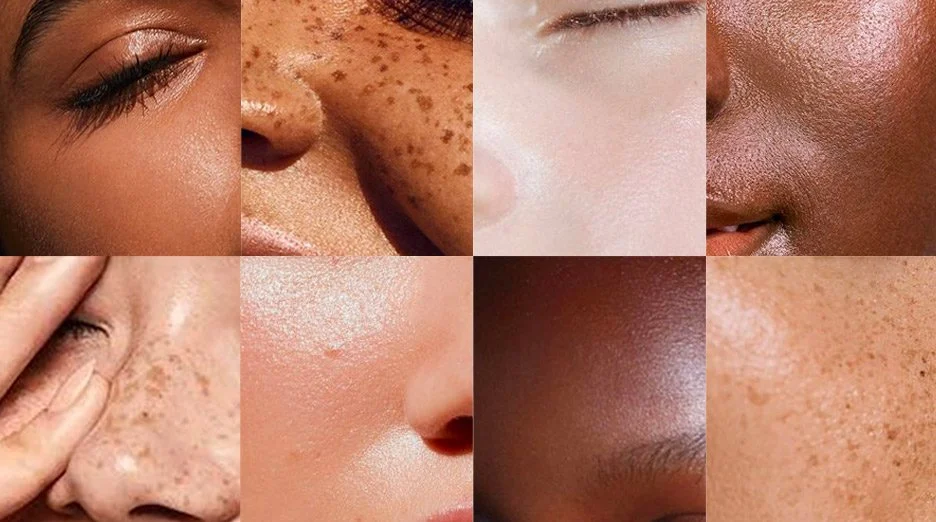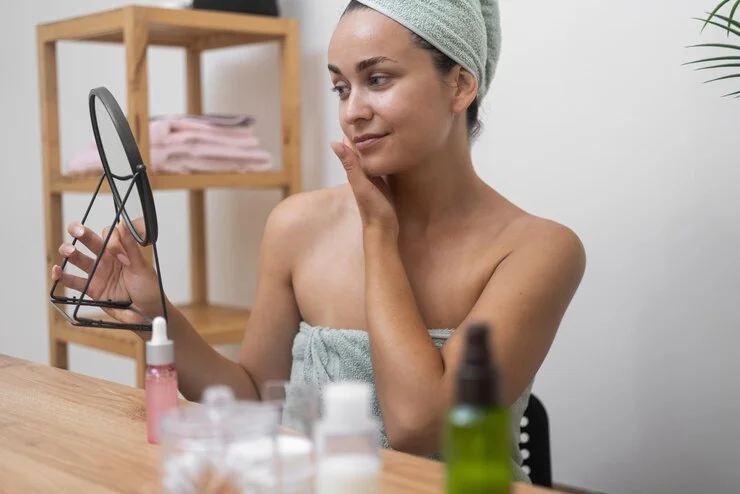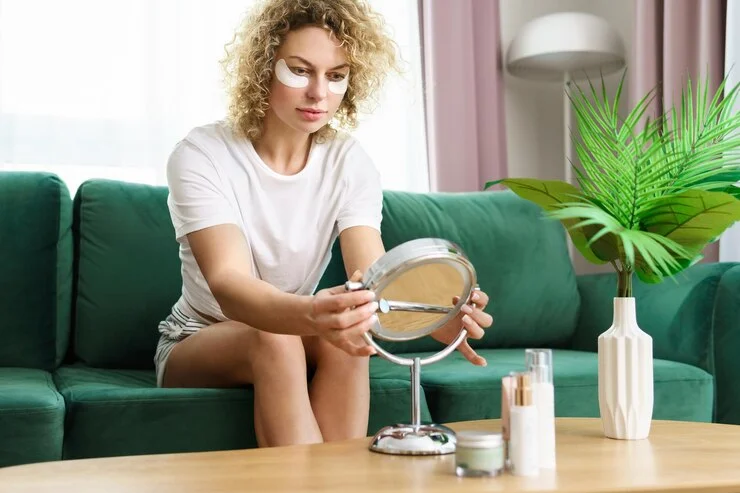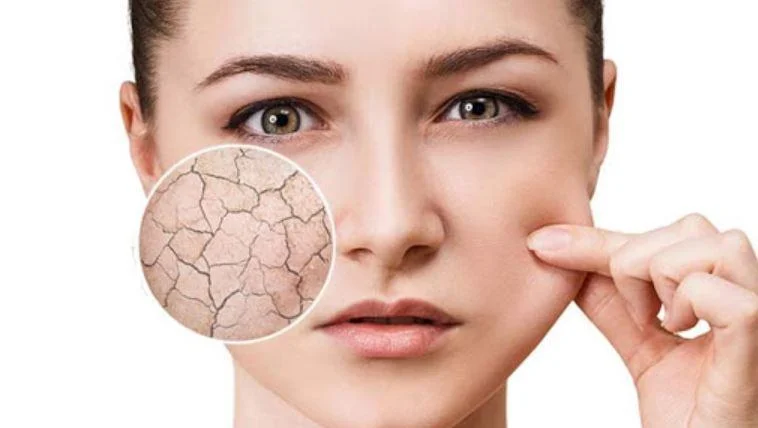As someone who has struggled with dehydrated skin for years, I know firsthand how frustrating it can be to deal with a dull, tight, and uncomfortable complexion. Dehydration is a common skin concern that affects people of all ages and skin types, and if left unaddressed, it can lead to a host of other problems like premature aging, sensitivity, and even breakouts.
But the good news is that dehydrated skin is highly treatable. In this comprehensive guide, I’ll share my personal tips and expert insights on how to identify, address, and finally overcome the dreaded skin dehydration. By the end, you’ll be equipped with the knowledge and tools to restore your skin’s natural glow and radiance.
Understanding Dehydrated Skin
Before we dive into the solutions, it’s important to understand what dehydrated skin is and how it differs from dry skin. Dehydration refers to a lack of water in the skin, while dryness is a lack of oil. Dehydrated skin can feel tight, uncomfortable, and even look dull, but it’s often accompanied by an overproduction of oil as the skin tries to compensate.
Dry skin, on the other hand, lacks both oil and water, leading to a rough, flaky, and parched appearance. While the two conditions may seem similar, the root causes and treatment approaches are quite different.
Some of the primary culprits behind dehydrated skin include:
- Environmental factors like low humidity, harsh weather, and sun exposure
- Overuse of drying skincare products
- Certain skin conditions like eczema or rosacea
- Dehydrating lifestyle habits like not drinking enough water
Identifying Dehydration In Skin
So, how can you tell if your skin is truly dehydrated? Here are some telltale signs to look out for:
- Tight, uncomfortable feeling: Dehydrated skin often has a “stripped” sensation, especially after cleansing.
- Dull, lackluster appearance: Without adequate moisture, the skin loses its natural radiance and glow.
- Increased sensitivity: Dehydrated skin is more prone to redness, irritation, and stinging.
- Visible fine lines: Dehydration can enhance the appearance of fine lines and wrinkles.
- Excessive oiliness: Your skin may overproduce oil in an attempt to compensate for the lack of water.
If you’re still unsure, try the “pinch test.” Gently pinch a small area of skin on your cheek or the back of your hand. If the skin returns to its normal state immediately, you likely have healthy, well-hydrated skin. But if the skin takes a few seconds to snap back, that’s a sign of dehydration.
Repairing the Skin Barrier
One of the key reasons dehydrated skin is so problematic is that it often goes hand-in-hand with a compromised skin barrier. This protective outer layer is responsible for locking in moisture and shielding the skin from environmental aggressors.
When the barrier function is impaired, as is common in dehydration, it becomes much harder for the skin to retain water and prevent transepidermal water loss. This can exacerbate dryness, sensitivity, and other unwanted issues.

To repair the skin barrier and combat dehydration, look for products containing nourishing, barrier-strengthening ingredients like:
- Ceramides: These lipids help reinforce the skin’s natural protective layer.
- Hyaluronic acid: A powerful humectant that can draw and trap water in the skin.
- Glycerin: An emollient that helps seal in moisture and prevent evaporation.
- Squalane: A lightweight, non-greasy oil that mimics the skin’s own sebum.
- Panthenol: Also known as pro-vitamin B5, it has soothing and hydrating properties.
Consistent use of these types of ingredients, along with gentle cleansing and minimal exfoliation, can help restore the skin’s natural balance and resilience.
Building an Effective Routine For Hydrated Skin
Once you’ve identified dehydration as the root of your skin concerns, it’s time to build a targeted routine to address it. Here’s a step-by-step guide:
Cleanse Gently: Opt for a mild, non-foaming cleanser that won’t strip away essential oils and moisture. Avoid harsh soaps, alcohol-based toners, and products with fragrance.
Exfoliate Carefully: Over-exfoliating can compromise the skin barrier, so limit physical and chemical exfoliants to 1-2 times per week. Look for gentle options like lactic acid or papaya enzymes.
Infuse with Hydration: Incorporate hydrating serums, essences, and ampoules containing ingredients like hyaluronic acid, glycerin, and betaine. Apply these before your moisturizer to really lock in the moisture.

Seal it In: Top off your routine with a rich, creamy moisturizer formulated with ceramides, oils, and emollients. This helps prevent transepidermal water loss and strengthens the skin barrier.
Don’t Forget SPF: Sun exposure can further dehydrate the skin, so be diligent about using a broad-spectrum sunscreen, even on cloudy days.
Incorporate Masks and Treatments: Weekly or bi-weekly hydrating masks, overnight sleeping packs, and replenishing face oils can provide an extra boost of nourishment.
The key is to be patient and consistent. Restoring a dehydrated complexion takes time, so stick with your routine and allow your skin to gradually regain its healthy, glowing radiance.
Lifestyle Factors to Consider For Better Skin Care
While a targeted skincare routine is essential for addressing dehydration, your daily habits and environmental exposures can also play a significant role. Here are some lifestyle factors to keep in mind:

Hydration: Ensure you’re drinking plenty of water throughout the day to maintain optimal skin hydration from the inside out.
Diet: Incorporate hydrating, water-rich foods like fruits, vegetables, and healthy fats that nourish the skin.
Environment: Use a humidifier, especially during dry, winter months, to add moisture back into the air.
Sun Protection: Wear broad-spectrum sunscreen daily to prevent further dehydration and damage to the skin barrier.
Stress Management: High stress levels can disrupt the skin’s natural moisture balance, so find healthy ways to unwind and relax.
Making sustainable changes to your lifestyle can work in synergy with your skincare routine to deliver long-lasting hydration and a radiant, healthy glow.
When to Seek Professional Help
In most cases, dehydrated skin can be effectively managed with the right at-home regimen and lifestyle adjustments. However, if you find that your skin isn’t responding to your efforts, or if the dehydration is accompanied by persistent irritation, inflammation, or other concerning symptoms, it may be time to consult a dermatologist.
A skincare specialist can perform a comprehensive evaluation, identify any underlying conditions that may be contributing to your dehydration, and prescribe more potent, targeted treatments if necessary. This may include prescription-strength moisturizers, barrier repair serums, or even in-office procedures like chemical peels or laser treatments.
Don’t hesitate to seek professional guidance if your home remedies aren’t providing the relief you need. With the help of a dermatologist, you can get to the root of your dehydration and finally achieve the healthy, radiant complexion you deserve.
Conclusion
Dehydrated skin can be a frustrating and persistent issue, but it’s also highly treatable with the right approach. By understanding the causes, identifying the signs, and implementing a comprehensive skincare and lifestyle routine, you can effectively restore your skin’s natural moisture levels and reclaim that coveted glow.
Be patient, persistent, and open to adjusting your regimen as needed. With time and dedication, you can overcome dehydration and enjoy the confidence that comes with healthy, hydrated skin. So, what are you waiting for? Let’s get your complexion glowing again!
People Also Ask
What causes dehydrated skin?
Dehydrated skin can be caused by a variety of factors, both internal and external. Some of the most common culprits include:
Environmental Factors:
- Low humidity levels, especially in dry, winter climates
- Harsh weather conditions like wind, cold, and sun exposure
- Frequent bathing or showering in hot water
- Excessive air conditioning or heating use
Lifestyle Habits:
- Inadequate water intake and poor hydration
- Over consumption of caffeine and alcohol
- Smoking or vaping
- Lack of sleep and high stress levels
Skincare Practices:
- Using harsh, drying cleansers and toners
- Over-exfoliating the skin
- Applying products with alcohol, fragrance, and other irritants
- Skimping on moisturizing and barrier-repairing steps
Skin Conditions:
- Certain medical conditions like eczema, psoriasis, or rosacea
- Side effects from medications that can dehydrate the skin
- Hormonal changes, such as during menopause
Understanding the root causes of your dehydration is the first step in developing an effective treatment plan. Addressing these underlying factors is crucial for restoring your skin’s natural moisture levels.
How can I tell if my skin is dehydrated?
There are several telltale signs that your skin is lacking adequate hydration:
- Tight, uncomfortable feeling: Dehydrated skin often has a “stripped” or “squeaky clean” sensation, especially after cleansing.
- Dull, lackluster appearance: Without sufficient moisture, your complexion can look and feel dry, rough, and lacking in radiance.
- Visible fine lines: Dehydration can emphasize the appearance of fine lines and wrinkles, making them appear more pronounced.
- Increased sensitivity: Dehydrated skin is more prone to redness, stinging, and reactivity to certain products or environmental factors.
- Excessive oiliness: In an attempt to compensate for the lack of water, the skin may overproduce sebum, leading to an oily, shiny t-zone.
- Slow skin recovery: If you gently pinch a small area of your skin and it takes several seconds to bounce back, this is a sign of dehydration.
It’s important to note that dehydrated skin is different from dry skin. Dry skin lacks oil, while dehydrated skin lacks water. Identifying the specific issue is key to finding the right treatment approach.
If you notice multiple signs of dehydration, it’s time to evaluate your current skincare routine and lifestyle habits to get your complexion back on track.
What are the best ingredients for hydrating dehydrated skin?
When it comes to restoring hydration and repairing the skin’s protective barrier, there are several key ingredients to look for:
- Humectants:
- Hyaluronic acid: This powerful molecule can hold up to 1,000 times its weight in water, drawing moisture into the skin.
- Glycerin: An emollient that helps attract and retain water, keeping the skin plump and dewy.
- Panthenol (Pro-vitamin B5): Deeply hydrating and soothing for dry, irritated complexions.
- Emollients:
- Ceramides: These lipids are essential for strengthening the skin’s natural barrier function.
- Plant-based oils (e.g., squalane, rose-hip, marula): Help seal in moisture and nourish the skin.
- Shea butter: A rich, creamy emollient that provides intense hydration.
- Occlusives:
- Dimethicone: Forms a protective layer on the skin’s surface to prevent water loss.
- Petrolatum: An effective occlusive that helps lock in moisture.
- Beeswax: Creates a breathable barrier to keep hydration from evaporating.
- Antioxidants:
- Vitamin C: Helps strengthen the skin’s barrier and defend against environmental stressors.
- Vitamin E: Provides nourishing, hydrating, and protective benefits.
- Green tea: Rich in polyphenols that can soothe inflammation and replenish moisture.
Incorporating a mix of these hydrating, barrier-repairing, and nourishing ingredients into your skincare routine is key for reviving dehydrated skin. Be sure to introduce new products slowly and listen to how your complexion responds.
How do I build an effective routine for dehydrated skin?
Creating an effective skincare routine for dehydrated skin involves a strategic combination of products and steps. Here’s a general outline to get you started:
Morning:
- Gentle, non-foaming cleanser to remove impurities without stripping the skin
- Hydrating toner or essence to infuse the skin with moisture
- Serum containing humectants like hyaluronic acid or glycerin
- Moisturizer formulated with emollients and Occlusives to seal in hydration
- Broad-spectrum sunscreen to protect the skin from further dehydration
Evening:
- Oil-based makeup remover or micellar water to dissolve and lift away impurities
- Same gentle cleanser as the morning
- Exfoliating toner or essence 1-2 times per week (using lactic acid or enzymes)
- Hydrating serum or ampule
- Rich, creamy moisturizer or overnight sleeping mask
- Occasional use of a hydrating face oil or face mask
Remember to introduce new products slowly and give your skin time to adjust. Consistency is key, so stick with this routine for at least 4-6 weeks to see optimal results.
It’s also important to consider your individual skin type and concerns. Those with very dry or sensitized skin may need to scale back on exfoliation or use more occlusive products. Listen to your skin and make adjustments as needed.
When should I see a dermatologist about persistent dehydration?
If you’ve been diligently following an appropriate skincare routine and implementing lifestyle changes, but your dehydrated skin isn’t improving, it may be time to consult a dermatologist. Some signs that professional help is warranted include:
- Severe, unrelenting dryness and discomfort: If your skin feels constantly tight, flaky, and painful, despite your best efforts, a dermatologist can help identify the underlying cause.
- Persistent irritation and sensitivity: When dehydration is accompanied by redness, stinging, or other signs of irritation that don’t resolve, it could indicate a more complex skin condition.
- Lack of improvement over time: If you don’t see any noticeable difference in your skin’s hydration and overall appearance after 4-6 weeks of consistent at-home care, it’s time to reevaluate your approach.
- Presence of other skin concerns: Dehydration can sometimes coexist with or exacerbate issues like acne, eczema, or rosacea, which may require specialized treatment.
- Suspicion of an underlying medical condition: In some cases, chronic dehydration could be a symptom of an internal health issue, such as a thyroid disorder or autoimmune disease.
A dermatologist can perform a comprehensive evaluation, identify any underlying factors contributing to your dehydration, and prescribe more potent, targeted treatments if necessary. This may include prescription-strength moisturizers, barrier repair serums, or even in-office procedures like chemical peels or laser treatments.
Don’t hesitate to seek professional guidance if your home remedies aren’t providing the relief you need. With the help of a skincare expert, you can get to the root of your dehydration and finally achieve the healthy, radiant complexion you deserve.
Can dehydration lead to other skin problems?
Yes, persistent dehydration can absolutely contribute to or exacerbate other skin concerns. Some of the potential issues that can arise include:
- Acne and breakouts: When the skin is deprived of moisture, it can overproduce oil in an attempt to compensate, leading to clogged pores and blemishes.
- Premature aging: Dehydration can enhance the appearance of fine lines and wrinkles, as well as diminish the skin’s elasticity and overall radiance.
- Inflammation and sensitivity: A compromised skin barrier resulting from dehydration can make the complexion more reactive and prone to redness, stinging, and irritation.
- Eczema and dermatitis: Dehydration can worsen existing inflammatory skin conditions, causing the skin to become increasingly dry, flaky, and irritated.
- Hyperpigmentation: Sun exposure combined with dehydration can lead to the development of dark spots and uneven skin tone.
- Flakiness and rough texture: Without adequate hydration, the skin’s natural exfoliation process can become disrupted, causing a buildup of dry, dull skin cells.
Addressing the root cause of dehydration through a targeted skincare routine and lifestyle adjustments is crucial for preventing these additional skin problems from occurring or worsening over time. Neglecting to do so can lead to a vicious cycle of dehydration, inflammation, and other complexion concerns.
If you find that your dehydration is persistent or accompanied by any of these issues, it’s best to consult a dermatologist who can provide professional guidance and customized treatment recommendations.
How can lifestyle habits impact skin hydration levels?
Your daily habits and environmental exposures can have a significant impact on your skin’s hydration levels. Some of the key lifestyle factors to consider include:
- Hydration:
- Drinking enough water throughout the day is essential for maintaining optimal skin moisture.
- Caffeine and alcohol can be dehydrating, so try to consume them in moderation.
- Diet:
- Incorporating water-rich foods like fruits, vegetables, and healthy fats can help nourish the skin from the inside out.
- Certain nutrients, such as omega-3 fatty acids and antioxidants, can also support the skin’s natural barrier function.
- Environment:
- Low humidity, harsh weather conditions, and excessive air conditioning or heating can all contribute to dehydration.
- Using a humidifier, especially during dry winter months, can help restore moisture to the air.
- Sun exposure:
- UV radiation can damage the skin’s protective barrier, leading to increased water loss and dehydration.
- Consistent use of broad-spectrum sunscreen is crucial for preventing further dehydration and other sun-related skin issues.
- Stress management:
- High levels of stress can disrupt the skin’s natural moisture balance and barrier function.
- Finding healthy ways to unwind and relax, such as meditation or yoga, can help mitigate the effects of stress on the skin.
- Sleep quality:
- Lack of quality sleep can impair the skin’s ability to properly hydrate and repair itself overnight.
- Aim for 7-9 hours of sleep each night to support your skin’s health and appearance.
By making conscious adjustments to your daily habits and environmental exposures, you can complement your targeted skincare routine and provide your skin with the nourishment it needs to maintain optimal hydration levels.
What’s the difference between dry skin and dehydrated skin?
While dry skin and dehydrated skin may seem similar, they are distinct conditions with different underlying causes and treatment approaches.
Dry Skin:
- Caused by a lack of oil production in the skin
- Results in a rough, flaky, and often scaly appearance
- Typically feels tight, uncomfortable, and itchy
- Brought on by factors like genetics, age, and environmental conditions
- Requires emollient-rich moisturizers to replenish lost oils
Dehydrated Skin:
- Caused by a lack of water content in the skin
- Appears dull, tight, and may feel uncomfortable
- Often accompanied by an overproduction of oil as the skin tries to compensate
- Can be triggered by both internal (e.g., diet, hydration) and external (e.g., weather, skincare) factors
- Requires humectant-based products to draw water into the skin and strengthen the barrier
The key distinction is that dry skin is a skin type, while dehydration is a skin condition that can affect any skin type, even oily complexions.
Addressing dehydration typically involves incorporating hydrating, water-based ingredients like hyaluronic acid, glycerin, and panthenol. Treating dry skin, on the other hand, often requires emollient-rich formulas containing oils, waxes, and butters to replenish the skin’s natural lipids.
In some cases, individuals may experience a combination of both dry and dehydrated skin, which requires a tailored approach to properly nourish and rebalance the complexion.
Are there any temporary fixes for dehydrated skin?
While building a consistent, long-term skincare routine is the best way to address and overcome dehydrated skin, there are a few temporary fixes you can utilize for immediate relief:
- Face Mists and Essences:
- These quick-absorbing, hydrating sprays can provide an instant boost of moisture to thirsty skin.
- Look for formulas containing humectants like glycerin or hyaluronic acid.
- Mist onto clean skin throughout the day as needed.
- Overnight Masks or Sleeping Packs:
- Thick, occlusive overnight treatments help seal in hydration while you sleep.
- Ingredients like ceramides, shea butter, and dimethicone create a protective barrier.
- Apply a generous layer before bed and wake up to plump, dewy skin.
- Hydrating Serums:
- Concentrated serums packed with humectants can quickly flood the skin with replenishing moisture.
- Apply a few drops before your moisturizer, focusing on areas that feel the driest.
- Face Oils:
- Nourishing oils like rose-hip, squalane, and marula can provide an extra boost of emolliency.
- Massage a few drops onto clean skin, concentrating on dry patches.
- The occlusive properties help seal in hydration.
- Ice Cubes or Chilled Tools:
- Gently pressing a cold ice cube or metal tool (like a jade roller) onto the skin can temporarily plump and soothe dehydrated areas.
- This quick trick helps reduce tightness and redness.
Remember, these temporary fixes are just that – temporary. They can provide instant relief, but to truly overcome chronic dehydration, you’ll need to adopt a comprehensive skincare routine and make lifestyle adjustments. Be patient and consistent for long-lasting results.
How long does it take to recover from dehydrated skin?
The timeline for recovering from dehydrated skin can vary quite a bit from person to person, as it depends on several factors:
- Severity of Dehydration:
- Mild dehydration may resolve more quickly than severe, long-standing cases.
- Deeper levels of dehydration require more time and consistent effort to repair.
- Underlying Causes:
- If the dehydration is primarily driven by environmental factors or lifestyle habits, it may be quicker to address.
- Pre-existing skin conditions or medical issues can make recovery more complex and drawn-out.
- Skincare Routine:
- Diligently following a targeted hydration-focused regimen can speed up the recovery process.
- Inconsistent or improper product use can prolong the time it takes to see results.
- Lifestyle Adjustments:
- Making sustainable changes to increase water intake, manage stress, and protect the skin barrier all support the recovery timeline.
- Slow adoption of new habits can hamper progress.
As a general guideline, most people start to see noticeable improvements in their skin’s hydration and overall appearance within 2-4 weeks of implementing a dedicated skincare and lifestyle routine. However, it can take 6-12 weeks or longer for the skin to fully recover and regain its healthy, radiant glow.
The key is to be patient, persistent, and consistent with your approach. Expecting overnight results is unrealistic, as repairing dehydrated skin requires time and dedication. Stick with it, and you’ll be rewarded with a complexion that looks and feels its absolute best.


